Imagine a future where Alzheimer’s disease is no longer a threat. Science has uncovered Alzheimer’s Prevention strategies that not only protect your brain but also enhance your overall well-being.

How Is AI Revolutionizing Alzheimer’s Prevention?
Welcome to the future of brain health! In 2024. Artificial intelligence (AI) for Alzheimer’s prevention isn’t just a concept – it’s a powerful reality that’s changing lives.
Imagine having a personal brain health assistant right in your pocket.Imagine a digital coach guiding you towards better cognitive fitness.
Well, guess what? That future is here! Every 3 seconds, someone in the world develops dementia. With these AI innovations, we’re fighting back harder than ever.
In this article, we’ll explore 7 groundbreaking AI solutions that are transforming how we approach Alzheimer’s prevention.
From smart apps to wearable devices, we’re diving deep into the world where AI meets neuroscience.
Get ready to discover how these technological marvels help keep your brain sharp and potentially hold Alzheimer’s at bay. Let’s jump in and see how AI is becoming our strongest ally in the battle for brain health!
for more mental and cognitive-related topics, read our 7 Proven AI-OCD Treatments to Transform Your Mental Health
What Makes AI So Effective?
In one word, it’s “data”. AI systems can sift through mountains of data from medical records, brain scans, and genetic profiles to find patterns that humans might miss. This capability is particularly useful in understanding complex diseases like Alzheimer’s, where early detection can make a huge difference.
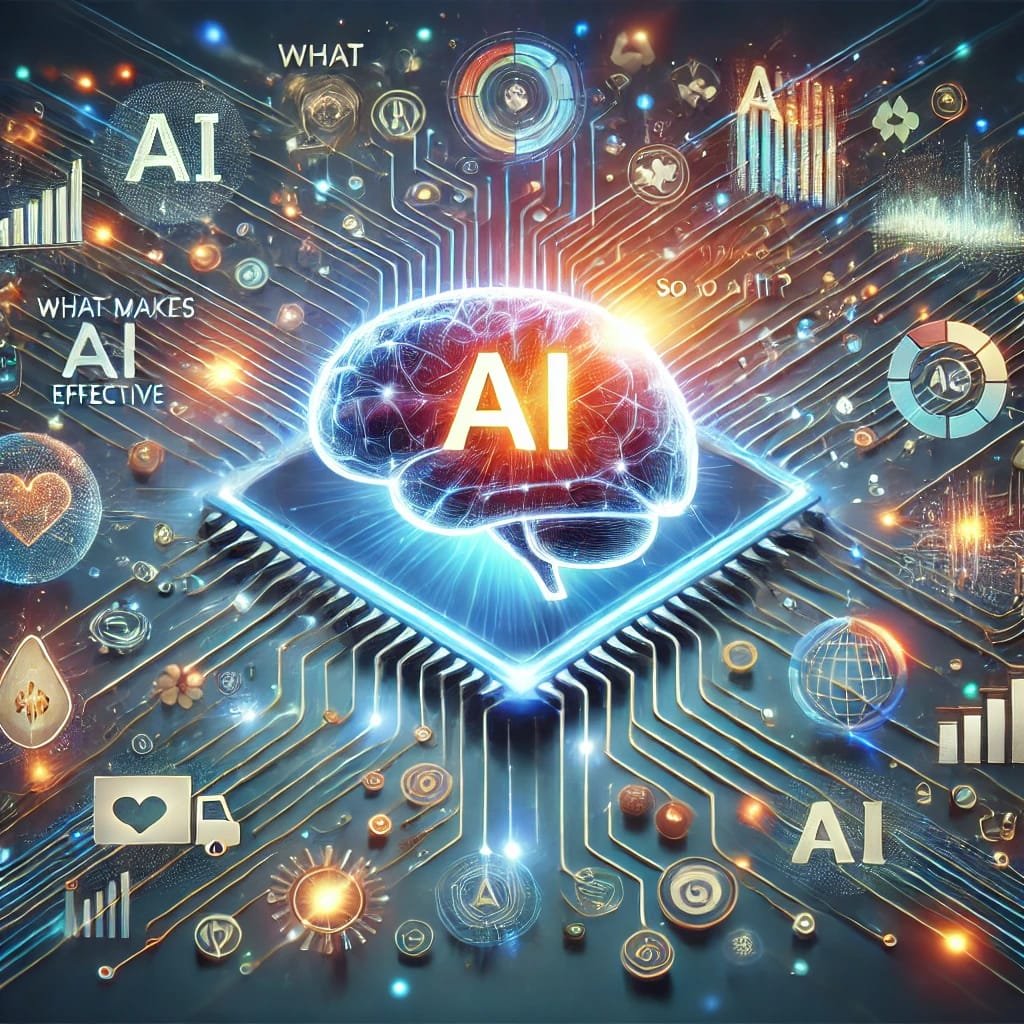
7 Game-Changing AI Solutions for Alzheimer’s Prevention in 2024
Now, let’s get to the good stuff—five amazing AI therapies that are showing promise in preventing Alzheimer’s disease. These technologies are not just futuristic; they are happening right now and making a real impact.
1. AI-Powered Brain Health Apps: Your Pocket Cognitive Guardian
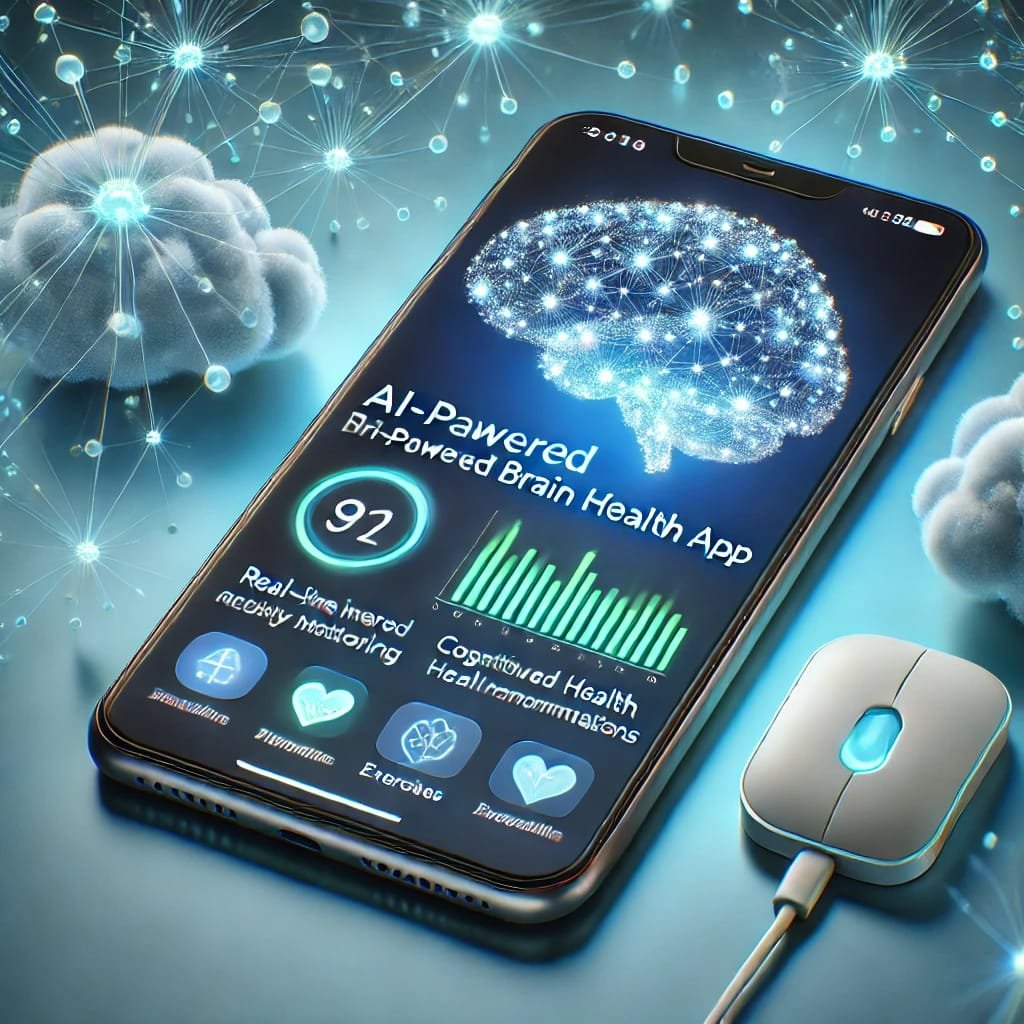
Hey there, brain health enthusiasts! Let’s talk about something super cool – AI-powered brain health apps. These aren’t your average smartphone apps; they’re like having a mini-genius in your pocket, constantly looking out for your cognitive well-being.
Recent AI breakthroughs in Alzheimer’s disease prevention have made these apps incredibly smart.
They can track your daily habits, run quick cognitive tests, and even predict your risk of mild cognitive impairment. It’s like having a personal brain coach that’s working 24/7!
Some of these apps use cutting-edge AI models to analyze your performance in fun brain games.
They’re not just entertaining – they’re gathering valuable data about your cognitive function. The best part? As you use the app, it learns more about you and tailors its recommendations to fit your unique brain.
A recent study shows that people who regularly use these AI-driven Alzheimer’s prevention apps show improved cognitive function over time. It’s not a magic bullet, but it’s a fantastic tool in our arsenal against memory loss and cognitive decline.
2. AI-Based Cognitive Training Programs: Gym for Your Brain
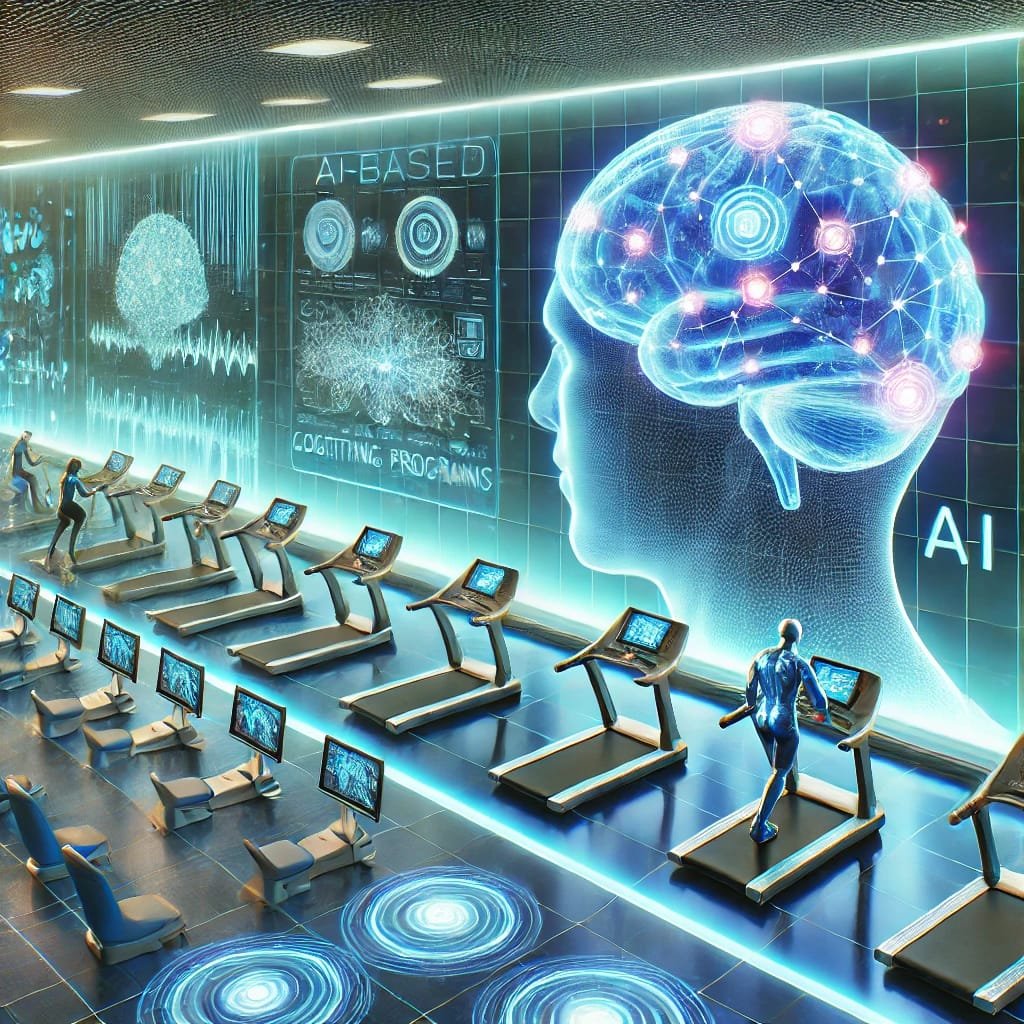
Alright, let’s flex those mental muscles! AI-based cognitive training programs are like a high-tech gym for your brain. These aren’t just random brain teasers – they’re carefully crafted exercises powered by sophisticated machine learning models.
The National Institutes of Health has been keeping a close eye on these programs, and the results are promising. They’re showing real potential in helping to maintain cognitive function and possibly even delay the onset of Alzheimer’s disease.
Read more about how The National Institutes of Health (NIH) funds AI-based cognitive training programs. This is done through the National Institute on Aging (NIA). These programs aim to improve cognitive function. They target older adults. They also focus on people at risk for Alzheimer’s disease and related dementias (AD/ADRD)
Here’s the cool part: these programs adapt to you. Having a tough time with memory games? The AI will adjust the difficulty. Acing the logic puzzles? It’ll ramp up the challenge.
It’s like having a personal trainer for your mind, pushing you just enough to keep your brain cells firing on all cylinders.
Some programs even use virtual reality to make the experience more immersive. Imagine solving puzzles in a 3D world or navigating memory challenges in a virtual city. It’s not just effective – it’s fun!
Traditional brain scans can be like looking for a needle in a haystack. AI, however, can analyze these scans with incredible precision, identifying early signs of Alzheimer’s that might be missed by the human eye.
This early detection is crucial for starting treatment early and potentially slowing the disease’s progression.
3. AI Nutrition Assistants: Feeding Your Brain for Prevention
Let’s chew on this for a moment – what if your diet could significantly lower your risk of Alzheimer’s? Well, AI nutrition assistants are here to help you do just that!
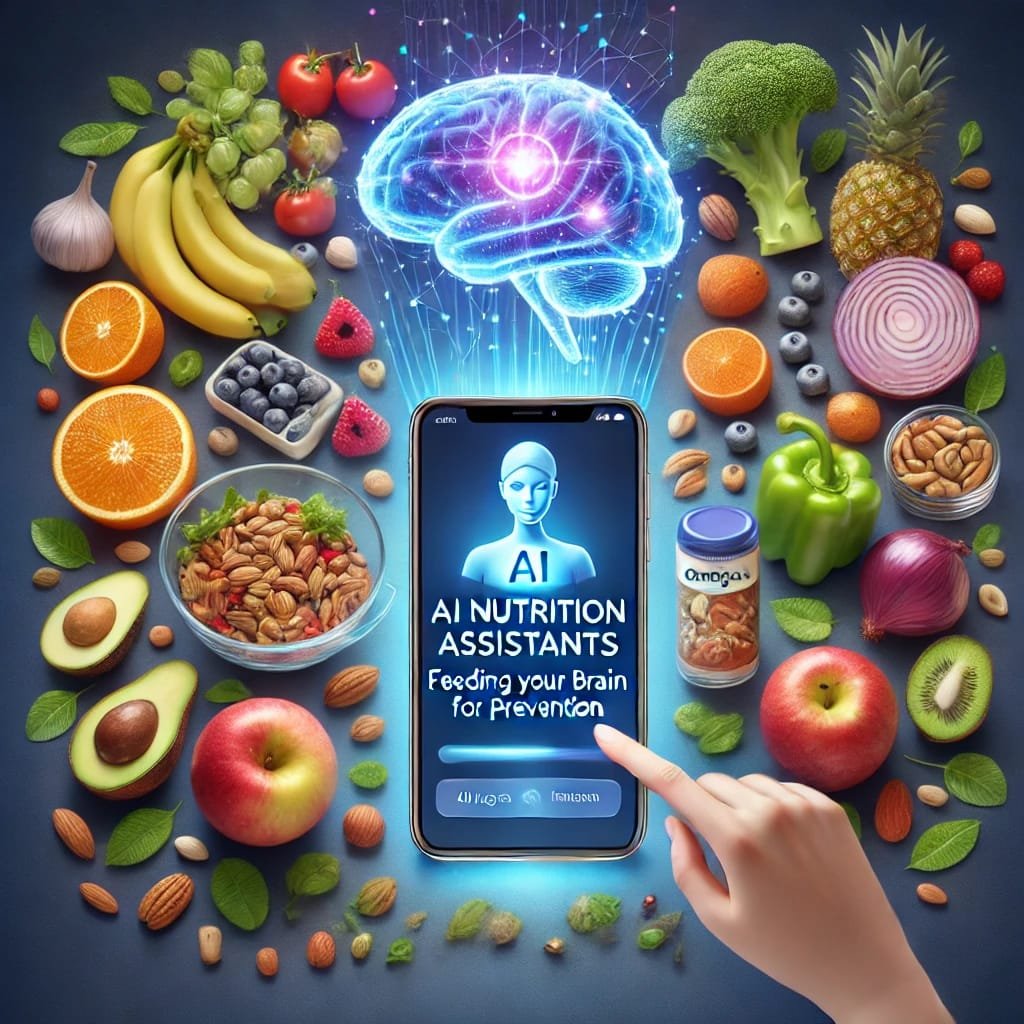
These smart little helpers use AI models to analyze your eating habits and suggest brain-boosting foods. They’re not just looking at calories – they’re considering how your diet affects your cognitive health.
High cholesterol? The AI might suggest omega-3-rich foods to help protect your brain.
But it’s not just about what you eat – it’s about how these AI assistants make it easy to eat right. They can plan meals, generate shopping lists, and even order groceries for you. It’s like having a nutritionist and a personal chef rolled into one, all focused on keeping your brain healthy.
The best part? These assistants learn from vast amounts of patient data and the latest research on diet and Alzheimer’s. So when new studies show a link between a certain food and brain health, your AI assistant is on it faster than you can say “avocado toast”!
4. Wearable AI Devices for Sleep Monitoring: Rest for Prevention
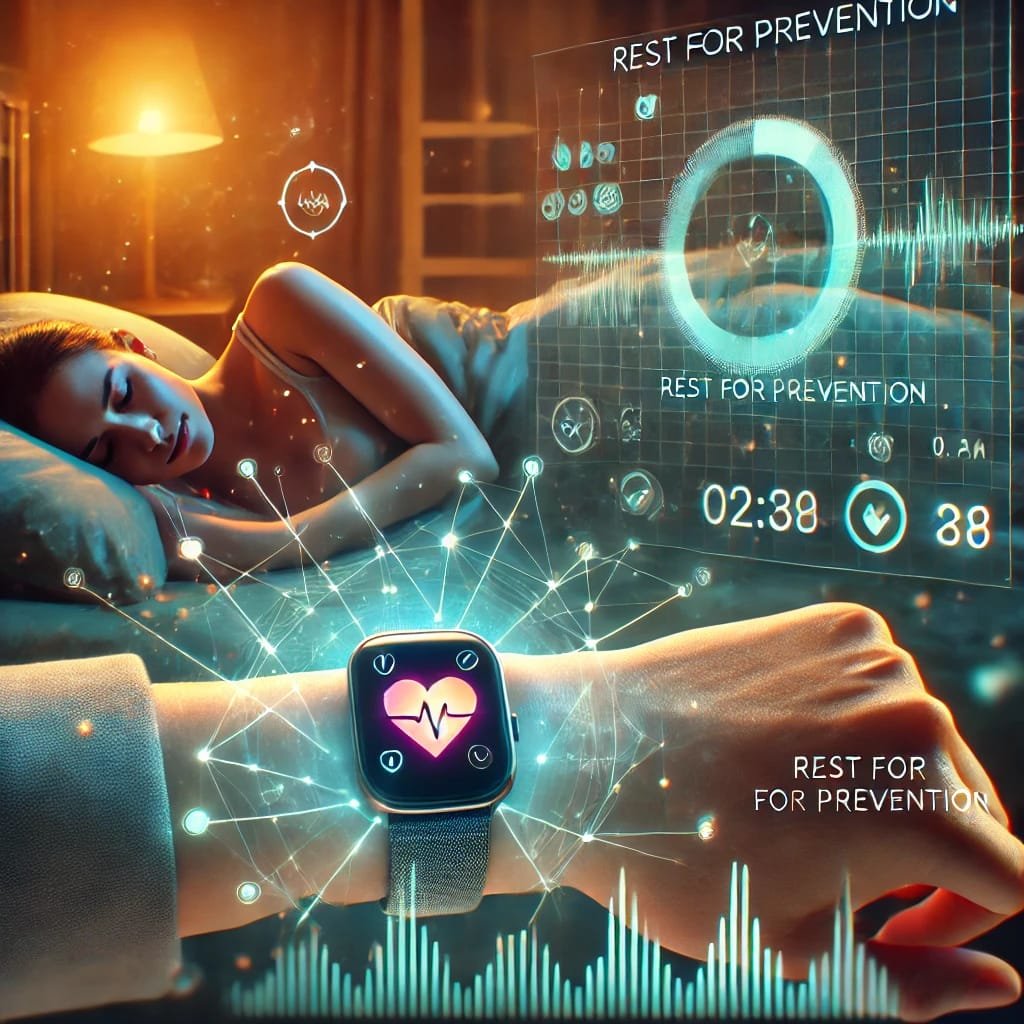
Okay, night owls and early birds, listen up! Did you know that poor sleep is a major risk factor for Alzheimer’s? That’s where AI-powered wearable sleep monitors come in, and trust me, they’re not your grandmother’s sleep trackers.
These high-tech gadgets use AI to analyze your sleep patterns in incredible detail. They’re looking at everything from your heart rate and breathing to how much you toss and turn.
But here’s the kicker – they don’t just collect data. They use machine learning models to understand what your sleep patterns mean for your brain health.
Having trouble reaching deep sleep, where your brain does a lot of its cleanup work? Your AI sleep buddy will notice and suggest changes to your bedtime routine. It might even sync with your smart home devices to create the perfect sleep environment.
Some of these devices can even detect subtle changes in sleep patterns that might indicate early signs of cognitive decline. It’s like having a night watchman for your brain, keeping an eye out for any troublemakers while you catch those Z’s.
5. AI Exercise Coaching: Moving Towards Better Brain Health and Alzheimer’s Prevention
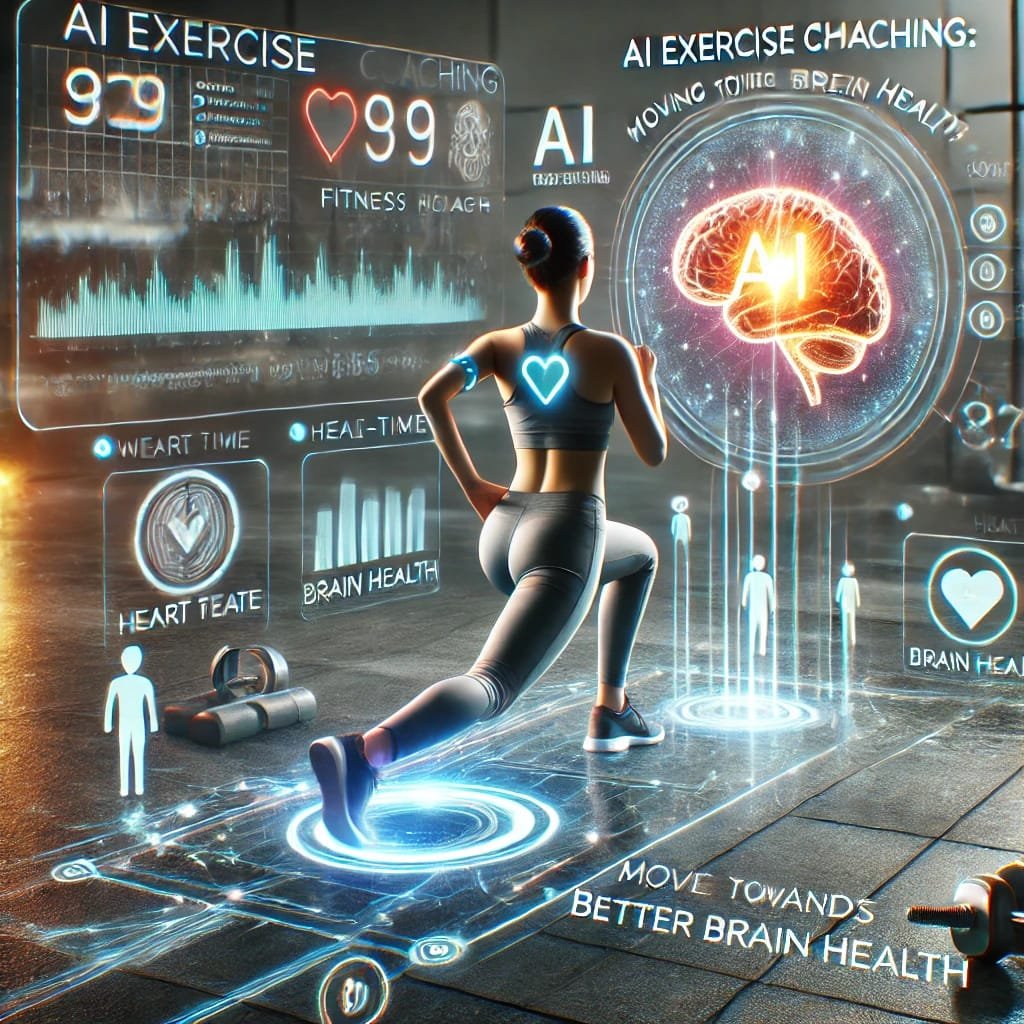
Time to get moving, folks! We all know exercise is good for us, but did you know it’s also a powerful tool in preventing Alzheimer’s? AI exercise coaches are here to help you sweat your way to better brain health.
These AI coaches use computer vision to watch your form and provide real-time feedback. It’s like having a personal trainer who’s an expert in exercises that boost brain health.
Whether you’re doing aerobic exercises to increase blood flow to your brain or coordination exercises to build new neural pathways, your AI coach has got your back.
But it’s not just about the exercises. These AI coaches analyze your progress over time, adjusting your routine to keep challenging you.
They can even factor in data from your other health apps to create a holistic fitness plan that’s all about keeping your body – and brain – in tip-top shape.
And for those days when motivation is low? Your AI coach might challenge you to a virtual race or reward you with fun brain games. It’s all about making brain-healthy exercise a habit you actually enjoy!
6. AI Mood and Stress Monitoring: Emotional Wellness for Brain Health
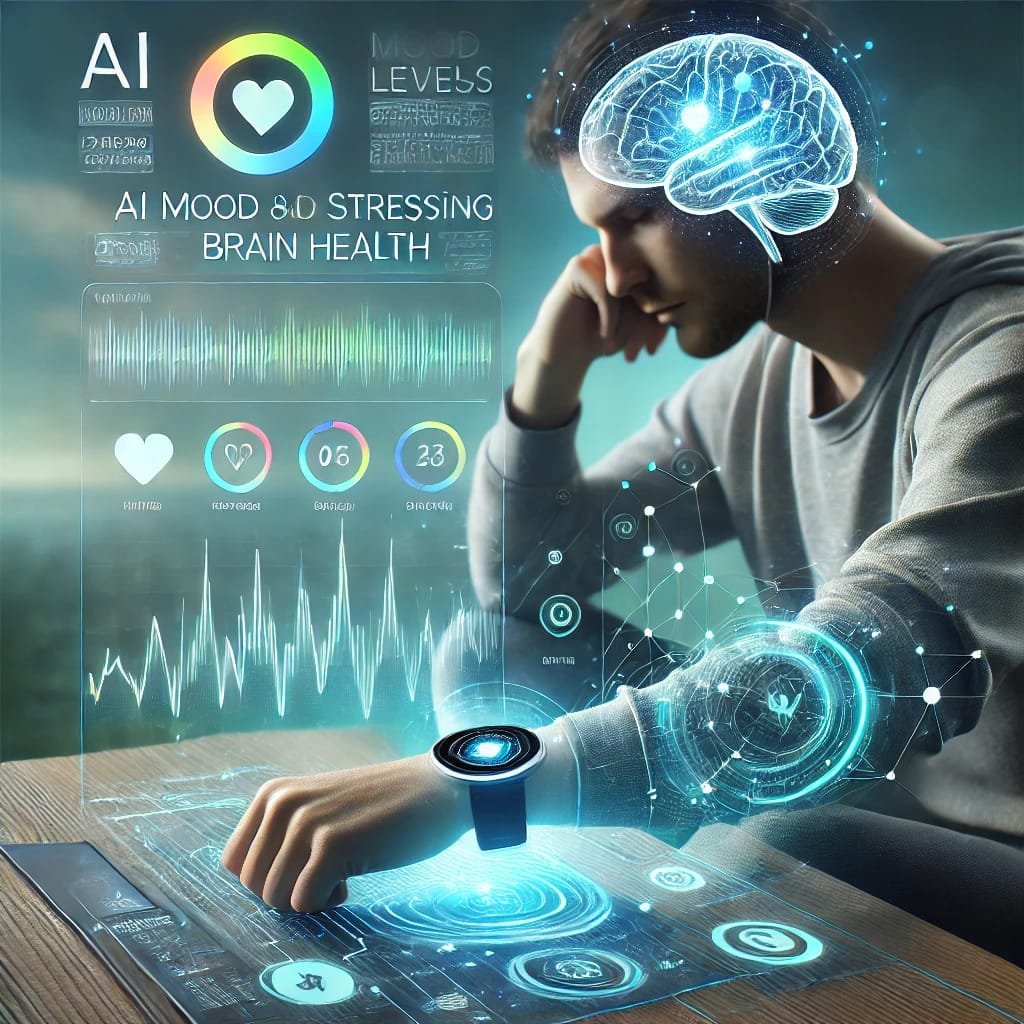
Let’s get real for a second – stress is not your brain’s friend. Chronic stress can actually increase your risk of Alzheimer’s. But don’t worry, AI is here to help you chill out and protect those precious neurons!
AI mood and stress monitors are like having a therapist in your pocket. They use natural language processing to analyze your speech patterns and even your text messages to gauge your emotional state.
Feeling stressed? Your AI buddy might suggest a quick meditation session or a mood-boosting playlist.
Some of these AI assistants can even detect subtle changes in your voice or typing patterns that might indicate depression – a known risk factor for cognitive decline.
It’s like having an emotional early warning system, helping you take action before stress can take a toll on your brain health.
But it’s not all about detecting problems. These AI assistants also help you build emotional resilience.
They might guide you through cognitive behavioral therapy exercises or suggest journaling prompts to help you process your emotions.
It’s all about creating a brain-healthy emotional landscape.
7. AI for Early Diagnosis: Catching Alzheimer’s Before It Starts
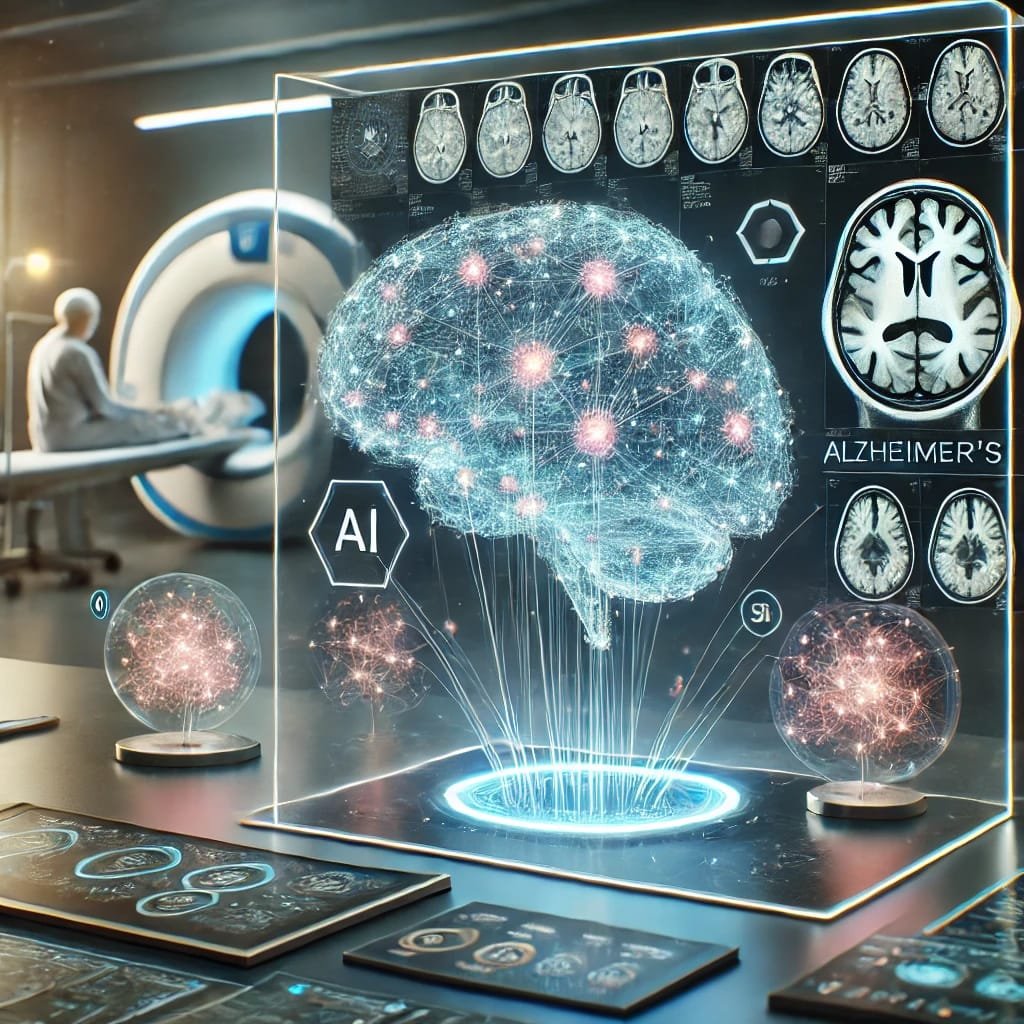
Alright, let’s talk about one of the most exciting areas of AI in Alzheimer’s research – early diagnosis. We’re not quite at the “predict the future” stage, but we’re getting impressively close!
AI models are now able to analyze brain scans with incredible accuracy, spotting tiny changes that might indicate early Alzheimer’s long before symptoms appear.
It’s like having a super-powered microscope peering into your brain, catching potential issues while there’s still time to act.
But it’s not just about brain scans. AI is also analyzing things like speech patterns, writing samples, and even how you move your mouse on a computer screen. These seemingly small details can actually reveal a lot about your cognitive health.
Some researchers are even using AI to predict who might develop Alzheimer’s based on a combination of genetic data, lifestyle factors, and cognitive tests. It’s like having a crystal ball, but one based on hard science and mountains of data.
The ultimate goal? To catch Alzheimer’s so early that we can prevent it from ever developing into full-blown dementia. With AI on the case, that future might be closer than we think!
Conclusion
As we wrap up our exploration of AI for Alzheimer’s prevention, it’s clear that we’re standing on the brink of a revolution in brain health management.
The seven groundbreaking AI solutions we’ve discussed – from AI-powered brain health apps to early diagnosis tools – are transforming the landscape of cognitive care and dementia risk reduction.
These artificial intelligence breakthroughs in Alzheimer’s disease prevention offer hope to millions worldwide. By harnessing the power of machine learning models and deep neural networks.
we’re now able to detect subtle changes in cognitive function long before traditional methods. This early detection capability is a game-changer in our fight against this devastating form of dementia.
Remember, every brain cell matters in this battle. Whether it’s AI-driven nutrition assistants helping you make brain-boosting food choices or smart wearables monitoring your sleep patterns, these tools are working tirelessly to keep your cognitive health in check.
They’re not just collecting data – they’re providing actionable insights based on cutting-edge Alzheimer’s research and vast amounts of patient data.
But let’s not forget – AI is a powerful ally, not a replacement for a healthy lifestyle. It’s crucial to combine these high-tech tools with brain-healthy habits like regular exercise, social engagement, and lifelong learning.
Think of AI as your personal cognitive health coach, guiding you towards better brain health with every choice you make.
Using AI for Alzheimer’s Prevention
The future of Alzheimer’s prevention looks brighter than ever, thanks to these AI innovations. From predicting mild cognitive impairment to optimizing clinical trials for new treatments.
Artificial intelligence is accelerating our progress on multiple fronts. The National Institutes of Health and leading researchers worldwide are increasingly turning to AI models to unlock the mysteries of this complex disease.
As we look ahead, the potential for AI in Alzheimer’s prevention seems limitless. Imagine a world where personalized AI algorithms can predict your risk of cognitive decline with unprecedented accuracy.
machine learning models can design tailor-made prevention strategies based on your unique genetic profile and lifestyle factors.
So what’s your next move in this AI-powered brain health revolution? Whether it’s downloading a cognitive training app, trying out an AI sleep monitor, or participating in an AI-optimized clinical trial, every step counts.
Remember, when it comes to Alzheimer’s prevention, your brain deserves the best care possible – and with AI on our side, we’re better equipped than ever to provide it.
Let’s embrace these AI breakthroughs and look forward to a future where Alzheimer’s disease is no longer a looming threat, but a challenge we can meet head-on with our silicon-based allies.
Your journey to better brain health starts now – and AI is here to guide you every step of the way!



